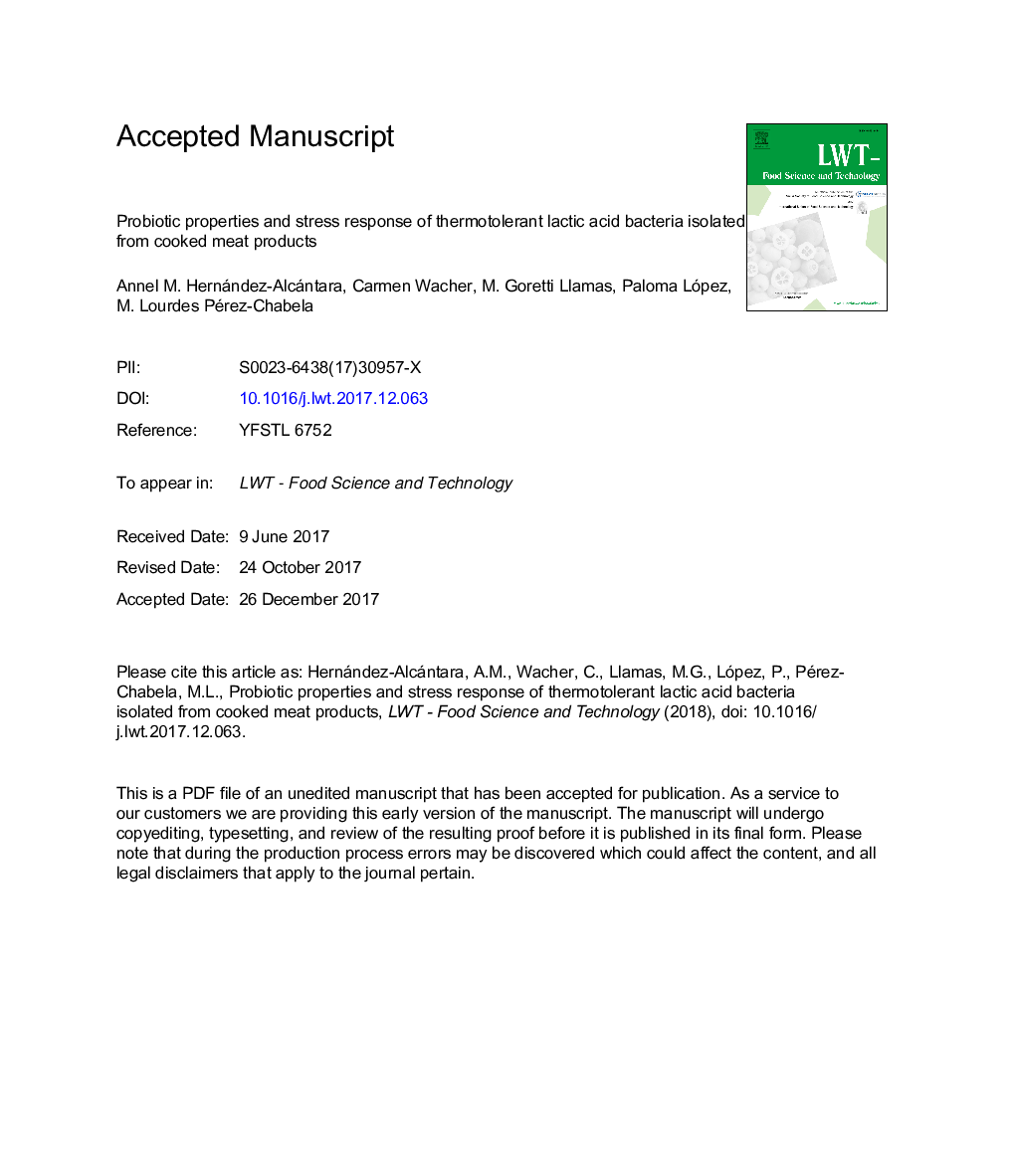| Article ID | Journal | Published Year | Pages | File Type |
|---|---|---|---|---|
| 8891659 | LWT - Food Science and Technology | 2018 | 33 Pages |
Abstract
The aim of this study was to evaluate the probiotic properties of six thermotolerant lactic acid bacteria isolated from cooked meat products. The bacteria were typed, by determination of the DNA sequence of their 16S rRNA coding genes, as one Enterococcus faecium (UAM1 strain) and five Pediococcus pentosaceus (UAM2-UAM6 strains). Under gastric stress conditions the viability of the Pediococci decreased more than five-fold, whereas E. faecium showed a high resistance (61% survival). Exposure to small intestine stress did not drastically affect the survival of any of the strains (less than one-fold decrease), which were able to grow in the presence of 0.3% bile. A hydrophilic surface profile was observed, with higher affinity for chloroform than for xylene. Strains showed high levels of auto-aggregation as well as co-aggregation with Gram-positive and Gram-negative bacterial pathogens. The adherence of E faecium UAM1 to human Caco-2â¯cells (around 20%) was significantly higher than that obtained with the P. pentosaceus strains (2%-5%) and Lactobacillus acidophilus LA-5 (6%). The overall results indicate that E. faecium UAM1, has probiotic properties that predict its capability to colonize in competition with pathogens in the intestinal tract. This bacterium deserves further investigation for its potential as a component of functional food.
Related Topics
Life Sciences
Agricultural and Biological Sciences
Food Science
Authors
Annel M. Hernández-Alcántara, Carmen Wacher, M. Goretti Llamas, Paloma López, M. Lourdes Pérez-Chabela,
